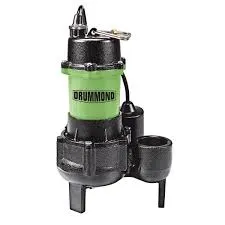Azerbaijani
- Afrikaans
- Albanian
- Amharic
- Arabic
- Armenian
- Azerbaijani
- Basque
- Belarusian
- Bengali
- Bosnian
- Bulgarian
- Catalan
- Cebuano
- Corsican
- Croatian
- Czech
- Danish
- Dutch
- English
- Esperanto
- Estonian
- Finnish
- French
- Frisian
- Galician
- Georgian
- German
- Greek
- Gujarati
- Haitian Creole
- hausa
- hawaiian
- Hebrew
- Hindi
- Miao
- Hungarian
- Icelandic
- igbo
- Indonesian
- irish
- Italian
- Japanese
- Javanese
- Kannada
- kazakh
- Khmer
- Rwandese
- Korean
- Kurdish
- Kyrgyz
- Lao
- Latin
- Latvian
- Lithuanian
- Luxembourgish
- Macedonian
- Malgashi
- Malay
- Malayalam
- Maltese
- Maori
- Marathi
- Mongolian
- Myanmar
- Nepali
- Norwegian
- Norwegian
- Occitan
- Pashto
- Persian
- Polish
- Portuguese
- Punjabi
- Romanian
- Russian
- Samoan
- Scottish Gaelic
- Serbian
- Sesotho
- Shona
- Sindhi
- Sinhala
- Slovak
- Slovenian
- Somali
- Spanish
- Sundanese
- Swahili
- Swedish
- Tagalog
- Tajik
- Tamil
- Tatar
- Telugu
- Thai
- Turkish
- Turkmen
- Ukrainian
- Urdu
- Uighur
- Uzbek
- Vietnamese
- Welsh
- Bantu
- Yiddish
- Yoruba
- Zulu
Telephone: +86 13120555503
Email: frank@cypump.com
Noy . 05, 2024 22:19 Back to list
Industrial Submersible Water Pump Solutions for Efficient Water Management Systems
The Importance of Submersible Water Pumps in Industrial Applications
In the modern industrial landscape, the need for efficient water management systems has never been more critical. Among the various tools and technologies available, submersible water pumps stand out as pivotal components in many industrial operations. These innovative devices offer a multitude of advantages, making them indispensable in sectors ranging from construction and agriculture to mining and wastewater management.
What are Submersible Water Pumps?
Submersible water pumps are designed to operate while submerged in fluid. Unlike standard pumps, which can only function above the liquid level, these pumps are placed directly in the water, allowing them to push fluid to the surface through a series of impellers. This unique design not only enhances their efficiency but also minimizes the need for additional infrastructure, as the pump does not require a suction line above the water surface.
Key Benefits of Submersible Water Pumps
1. Efficiency Submersible pumps are inherently more efficient than their standard counterparts. With their ability to push water directly to the surface, they require less energy to operate, reducing overall operational costs for businesses. This efficiency is especially beneficial in large-scale industrial applications, where energy consumption can significantly impact the bottom line.
2. Versatility Another major advantage of submersible water pumps is their versatility. These pumps can handle different types of fluids, from clean water to heavily contaminated wastewater. As a result, industries can rely on these pumps for a broad range of applications, including irrigation, dewatering construction sites, and managing stormwater runoff.
3. Space-saving Design The compact nature of submersible pumps allows for installation in tight spaces and enhances their usability in varied environments. Given that they operate underwater, there is less need for extensive piping and additional equipment. In industries where real estate is expensive, this space-saving capability translates into considerable savings.
submersible water pump industrial

4. Durability Designed to withstand harsh conditions, submersible water pumps are typically constructed from corrosion-resistant materials, ensuring a longer lifespan. This durability is critical in industrial environments, where pumps may be exposed to abrasive materials and fluctuating temperatures.
5. Low Maintenance While routine maintenance is necessary for any mechanical device, submersible water pumps generally require less upkeep compared to traditional pumps. The sealed design minimizes exposure to harmful elements, reducing the likelihood of mechanical failure and limiting downtime—an essential factor in maintaining productivity in industrial operations.
Applications in Various Industries
Submersible water pumps find applications across a wide range of sectors. In construction, they are extensively used for dewatering excavations and managing groundwater to ensure work can proceed safely. In agriculture, these pumps facilitate irrigation, providing farmers with a reliable water supply to enhance crop production. The mining industry benefits from submersible pumps for removing excess water from mines and ensuring safe working conditions. Moreover, wastewater treatment facilities rely on these pumps to transport sewage and effluent efficiently.
Conclusion
As industries continue to evolve and face new challenges regarding water management, the importance of submersible water pumps cannot be overstated. Their efficiency, versatility, durability, and low maintenance make them a prime choice for a variety of applications. Investing in high-quality submersible pumps not only boosts operational efficiency but also contributes to sustainable water resource management, aligning with modern industrial practices focused on sustainability and environmental stewardship.
In conclusion, the significance of submersible water pumps in the industrial sector is profound, serving as critical tools for enhancing productivity and ensuring water management efficiency. As technology continues to advance, the development of even more sophisticated submersible pump systems is anticipated, promising further enhancements in industrial water management strategies. For businesses seeking to optimize operations and reduce costs, embracing this technology is not just beneficial; it’s essential.
-
Heavy-Duty Mining Sludge Pumps - Wear-Resistant Slurry Handling
NewsAug.02,2025
-
Horizontal Split Case Pump with GPT-4 Turbo | High Efficiency
NewsAug.01,2025
-
ISG Series Pipeline Pump - Chi Yuan Pumps | High Efficiency, Durable Design
NewsAug.01,2025
-
Advanced Flue Gas Desulfurization Pump with GPT-4 Turbo | Durable & Efficient
NewsJul.31,2025
-
ISG Series Vertical Pipeline Pump - Chi Yuan Pumps | Advanced Hydraulic Design&Durable Construction
NewsJul.31,2025
-
ISG Series Vertical Pipeline Pump - Chi Yuan Pumps | Energy Efficient & Low Noise
NewsJul.31,2025










